Interview: The Pooley Paradox
Emma Pooley continues to astonish the cycling world with the panache of her victories, the latest coming this weekend with a 70-kilometre solo break in the Trofeo Alfredo Binda World Cup event. We interviewed her for the March edition of Cycle Sport
Words by Andy McGrath
Portraits by Chris Catchpole, race photography by Graham Watson
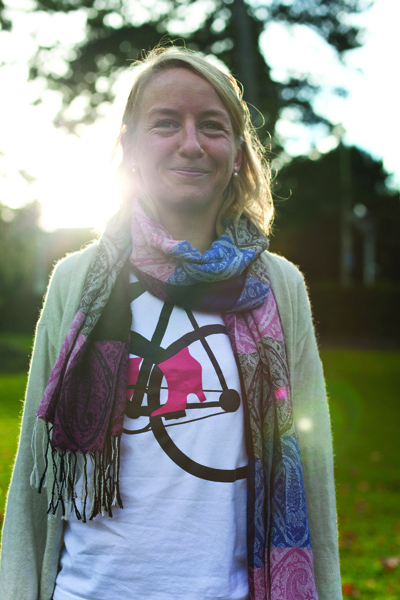
Emma Pooley is a world champion. A world champion worrier. She frets during races about when to attack, that she is too far back in the bunch; during training that her power output isn’t high enough. She feels bad that she neglects her friends and family during the racing season.
“I’m good at worrying. If I’m not worrying about something, I’m worrying there’s something wrong,” she jokes.
Even stood by a serene Lake Zurich in her hard-won rainbow jersey for our photo shoot, Cambridge graduate Pooley is stressing about finishing her PhD. She called off our pre-interview chat with the words: “I’d better do some more work on this Excel spreadsheet.” When cycling isn’t on her mind, graphs and numbers are.
Pooley’s mind turns faster than her legs in races too, as she analyses the possibilities. “If I’m scared in a race I don’t tend to race as well.” Scared of what? “Crashing, descending, cornering, if it’s wet especially. Sometimes I kind of forget about it and enjoy racing.”
Get The Leadout Newsletter
The latest race content, interviews, features, reviews and expert buying guides, direct to your inbox!
Even when we sit down to chat in her apartment, which is extremely tidy, there is a nervous energy about her. Ask a question and off she goes, words racing, tangents unfolding, with chainring-sharp wit. Cycle Sport wants to know how she sees herself: “Quite short. A bit of a worrier. Major OCD, about packing, tidying. The rainbow jersey is usually folded up. Everything has to be neat; I thought it was normal to line your CDs up in alphabetical order of artist.”
In build, also, Pooley is not your typical cycling champion. At seven stone and just over five foot tall, she’s tiny. But as her rivals know especially well from last season, turn your back for a moment and she’ll put a knife in it. She is cycling’s most destructive waif.
Breakthrough year
2010 was a turning point for Pooley. After four seasons gradually gaining confidence and results, she claimed twelve wins, remarkable for a non-sprinter.
Leading the Cervèlo women’s team, her top victories were Flèche Wallonne, the Tour de l’Aude, the GP Plouay, the British national title and the world championship time-trial. That’s a spread of wins unimagineable in contemporary men’s cycling.
But it’s the manner in which the 28-year-old wins which sets her apart from the rest. All tenacity and panache, her top road race wins were achieved solo - they have to be, as she is averse to the elbows-out aggression of bunch sprinting and lacks the pure speed. Instead she picks a moment and darts away.
She could be forgiven for a bit of arrogance. But Pooley is the opposite; four weeks after winning the rainbow jersey, she sits at the zenith of her powers and bats away compliments.
“You have to be really lucky in cycling and races, just to not get injured, or crash or get ill, so I’ve been lucky. I would say I’ve had a good year, but I think it’s not my year: in a time-trial, you’re on your own but all the other races I’ve been backed up by a really good team. So, we had a good year,” she says.
Journalists have called her style self-deprecating, but it extends further than that. It’s a defence mechanism: as CS discovers later, Emma Pooley is most uncomfortable when talking about her own qualities. Instead, she puts it down to her teammates, fluke, fortune - rarely her own talent or hard work.
According to her coach Tim Williams, who has overseen her training since her triathlon days as a student at Cambridge University, that self-congratulatory streak is not in her nature.
“Emma is very modest, it’s not just something she puts on for show. She is also extremely determined and focused, she can switch that on. She’s definitely an interesting combination: the modesty and self-deprecation doesn’t stop her winning.”
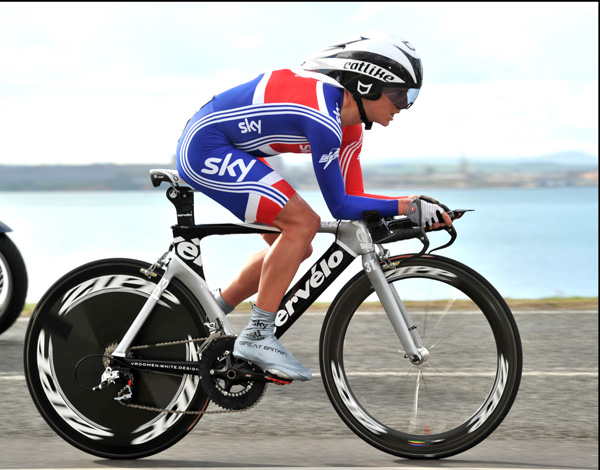
The world championship time-trial victory in Geelong last October showed how far Pooley has come, five and a half years after her first road race. Even she expresses contentment with that.
“It was really special, the pinnacle of what I hoped I could ever achieve. Geelong was particularly satisfying because it was undulating: a hard course, but not crazy,” she says. “It was nice because I’d focused so much on it and gone out to Australia early.”
Once out there, it was in her nature to rebuff the British press pack’s attempts to give her the ‘favourite’ tag. In her actions, however, she was doing everything a contender should do: practicing her cornering, working on her form and, of course, worrying - about her SRM numbers.
“I was doing loads of riding on my time-trial bike and every time I did intervals, the power was really low. ‘Is there something wrong with the power meter? No?’ I was like ‘my power’s really crap, this isn’t a good sign’.”
The focus she gave the race also created anxiety for Pooley.
“I’m always worried that if you focus so much on one thing, the pressure will mean that you don’t actually perform. If you’re not careful, you succumb to the pressure and don’t… win. So it was particularly nice that it went well.”
Even during the race, able to see that she was catching the rider in front, Pooley stressed. “I felt awful on the hills, like I was creeping. But having watched some of the footage, I wasn’t going that badly: it just feels really slow on a time-trial bike on a 20 per cent gradient.”
The truth is that it looked like she was going twice as fast as her closest rivals on that hill.
Downhill demons
It was on the downhills of the 22.9km course that she pressed home her advantage. In doing so, Pooley finally laid some demons to rest.
Descents used to be her bugbear, technically and psychologically. Williams tells us: “She really did have very big problems; about the same time she discovered that she could get to the top of climbs first in races, she also discovered that she couldn’t go down them very fast. She was crashing or getting caught for seemingly-ridiculous lengths of time.”
Pooley explains her problem: “At the end of 2009, I looked back at the Giro Donne, where I lost the leader’s jersey because I got dropped on a descent. It wasn’t difficult, I just couldn’t keep up. My team-mate got the jersey, but it was personally upsetting because I felt like an idiot.
“People have much less sympathy, especially as professionals shouldn’t get dropped on descents, but it’s not a given that you know how to go round corners or that you’re comfortable feeling fast. It’s ridiculous, but I get scared going fast. If you get into the mood, it’s better.
“My coach is really good at being patient. People in the past have said ‘just stay on my wheel’, and they go down the descent balls to the wall, and there’s no way I’m going to stay on their wheel, I don’t trust them at all,” she says. That automaton ability to switch the brain off and blindly follow is alien to her.
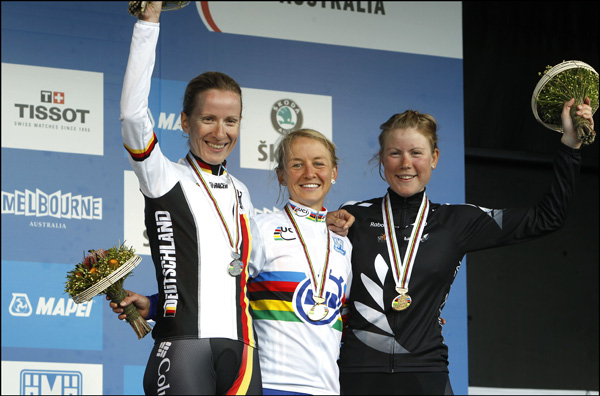
She has sought the help of British Cycling psychiatrist Steve Peters, who has helped several other top riders to cage their chattering inner chimps.
Pooley and Williams also worked at it. Some days they would go up and down the same hairpin in the Zurich hills ten times, with Pooley working on getting the line, lean and speed better each time, until she had amassed a positive bank of psychological experiences. Geelong was the culmination of that, an application of science.
Cycling by science
Time-trialling is itself an application of science, and Pooley is made for it. It is a sanctuary of SRM specificity and drag coefficients compared to bunch racing’s split-second shifts and myriad uncontrollables. Always a number to work on, something to be improved and an exact figure on the clock at the end of it.
“It’s much less stressful than road racing. Road racing is a bit mean: you have to be mean to other people, you have to make them suffer more than you do. It sounds really churlish but it’s the person who crosses the line first that wins, not the person who’s the strongest or fastest,” Pooley says. She sounds uneasy with this basic tenet, the inherent unfairness, of professional racing.
Coach Williams adds: “One of the things she likes about time-trialling is that she can get up and go on her own and she doesn’t have to stitch anyone up. She likes being part of a team,” he says.
Several times during the interview, Pooley refers to her Cervélo team’s good work. “I do feel more of a solidarity with teammates, I try to find them in the bunch and race well together. I quite enjoy that, and it’s really rewarding when you feel you’ve done a good job.”
She’s not afraid to shirk her fair share of the work. The 2008 Olympic Games demonstrated this mix of team devotion and individual talent.
Three days after setting Nicole Cooke up for her road race gold medal by going up the road in self-sacrifice, Pooley took silver in the time-trial.
Pooley made a mock-up Swiss course resembling the Beijing test and says that she rode it six times in the preceding months. “Every time I had a one-day race I’d come back to Switzerland and do a simulation course: basically 12 kilometres uphill,” Pooley says.
The Swiss practice almost made perfect, and the silver medal was no disappointment. “It was awesome. You get so much recognition outside cycling. I thought winning La Flèche Wallone was a real achievement, but anyone outside cycling doesn’t really know what it is.”
That said, her Flèche Wallonne win last April was a decisive moment, setting her whole season into flight. “That gave her the confidence that she could be there in the right places and deliver at the end of teamwork,” Williams says.
As her rivals toiled on the finishing climb of the Mur de Huy, Pooley hardly seemed to be making any effort as she eased away and levered open a gap. But if she’d had it her way, her move would have come sooner.
“I’d much rather have attacked the first time up the Mur, but didn’t trust myself to not screw up,” she says.
She almost did. On the penultimate climb of the race, the Côte d’Ereffe, she was sat too far back and had to ride from mid-pack to the head of the bunch, where the break was attempting to go.
When we ask about the race, Pooley shows a perfectionist’s frustration, half-chastising herself for the potential race-losing error rather than talking about the joy of winning. “That one effort was okay to do, but if I’d not managed to get a gap on the last climb, it would have been that effort that stopped me from winning, and that would have been…,” she lets out a berating sigh, ‘Stupid me!’ because you’re losing the race from not saving your energy.”
It does Pooley and her sport a disservice to say you can ride from mid-bunch-to-breakaway in women’s cycling. When you’re as gifted as she is, you can do that.
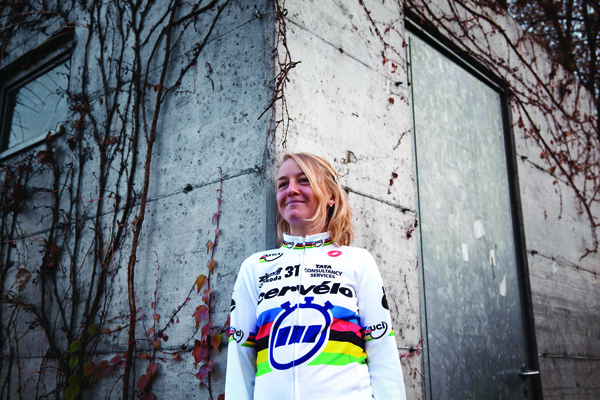
One year, she got in trouble with her teammates at the Tour de l’Ardèche for enthusing about the stunning vista from the top of a mountain. “I was like ‘Did you see the view, wasn’t it amazing?’ and they replied: “Shut up about the view, I was hanging onto the wheel in front,” she reflects, imitating the tired voices of teammates.
When the road turns uphill, Pooley is in her element. At the photo shoot, her enthusiasm had shone through as she talked about going for 200-kilometre monster rides in the Swiss mountains before the winter weather rendered them impassable, finishing up with a pizza in Zurich. The beautiful scenery, the friendships, coffee stops and cafes; that’s also what gives Pooley a love for cycling.
“Sociable cycling is not something that most pros do,” Pooley acknowledges. “Most of my training partners aren’t professional and don’t even race, and I don’t care – they’re good company, they know routes and make it fun to cycle.”
Early running
Pooley’s first taste of victory came in her first “proper” running race. She entered a local event following several impromptu cross-country sessions at Norwich High School, which took place when the netball pitches were iced over. “My dad drove me all the way to Thetford Forest on a Sunday, and he was really cross, an hour’s drive on shitty little lanes.
I won, and he was so thrilled; and I got this vast cup,” her voice raises in recollection, “for winning the under-15s or something, and I was the only one there who didn’t have spikes or a proper vest and wasn’t in a club: I was in football shorts and trainers. It was the biggest underdog win of my life!”
Pooley quickly moved on to county and national level. In 2003, a leg injury took her to cycling as a recovery aid, and from there she tried her hand at duathlon and triathlon. “I was pretty rubbish at it,” she says typically.
She was actually very good, an age-group world duathlon champion in 2004 who raced for Great Britain. Williams even calls her a “triathlete at heart”. But becoming a professional sportswoman was never part of Pooley’s plan. She gained a place at Trinity Hall, Cambridge for mathematics in 2001.
“Getting in was the hard thing,” she reflects. “Looking back, I was so chuffed to even get in that I think I was blind, I didn’t realise how hard it would be. I really couldn’t hack it. I realised that I was very far from being the cleverest person, I didn’t much like that I was suddenly the thick one.”
At the end of the first year, she switched courses to engineering. With the heavy workload and intense pressure, she learned an important skill. “You have to do the work and if you don’t do the work, you have to be able to pretend to do the work,” she explains with a smile. “I used to fall asleep in supervisions because I was always so knackered for some reason.”
In 2005, Pooley entered her first road race. “A friend persuaded me to go to one, then nationals.” Though she had only done four races beforehand, Pooley made it into the leading break with then-world-number-one Nicole Cooke and claimed fourth place.
The next month, she rode the Tour of Brittany in a composite team. She got into the break on the first stage and rode herself ragged for compatriot Charlotte Goldsmith, ultimately finishing tenth. “I have never ridden so hard. I’ve still got the emails I sent to friends, saying ‘I can’t believe how hard this is, I’m so glad I’m not a professional cyclist’. There was no way I wanted to be a professional cyclist or sportsperson,” she reiterates. “It was just accidental. I really should have finished the PhD and gone on to cycling. There was the Olympics, and you don’t pass up the chance to go to the Olympics, especially with the Beijing course. I fell into cycling, I’ve been lucky there.”
The novice Pooley crashed to earth with a bang at the 2005 world championships in Madrid. “I’ve kind of tried to put that out of my mind,” she says when we remind her. “You can imagine; I’d not done any bunch racing before and was really not ready,” she recalls. “They only took me for experience. I had no idea what I was doing, it was really stressful and then I crashed.”
The following year, Pooley moved to Zurich for her postgraduate PhD (see below), riding for the small Fat Birds UK team in Belgium. By the end of the season, she was ready to quit cycling.
“It was so depressing,” Pooley recalls. “I’d get the overnight train from Zurich to Paris on Friday night, arrive at the crack of dawn, get a train to Brussels, race Saturday, maybe Sunday, get an overnight train back and go to work.” Blooded in Belgian races like Omloop Het Volk, lightweight Pooley was on a hiding to nothing.
Demoralised, she did a lot of running and swimming at the end of the year as she mulled over the possibility of a return to triathlon, but it was a trip to see family in Australia in the winter of 2006 that rekindled her passion. “I did a secondment at the University of Western Australia, went riding, came back and joined the Specialized team. That’s where it all got a bit better.”
The small Swiss squad, with “no big stars” and passionate, unpaid helpers clicked for Pooley. In July 2007, she took her first big European win, going on a 120-kilometre lone foray on the third stage of the Thüringen Rundfahrt stage race in Germany.
The peloton’s big names let the British unknown go up the road and she won by almost five minutes. It was the first of several lone efforts.Her next big breakthrough came early in 2008 at the Trofeo Binda World Cup race, with a 40-kilometre escape to victory that she calls “only puny.”
The improvements continued, as did the successful solo breakaways. It came to a head at the Montreal World Cup race in 2009; Pooley attacked 400 metres after the start and won. In essence, was a 110-kilometre time-trial.
“The directeur sportif joked that that was the plan – ‘keep the aero bike in the car and we’ll swap it over halfway through.’ You have to look at the course, you can’t do that on any other. We looked on the start grid, and all the other favourites were at the back. Heh heh heh,” she laughs like a comic villain.
Pooley doesn’t covet the limelight, and she dislikes it when her sporting achievements and profile threatened to encroach on normal life.
“My dad re-married at the end of ’08 and I went to his wedding, the weekend after the Worlds. It was so nice to be back, but all these friends were going on about it and I was like ‘I’m here for a wedding, not a blooming medal ceremony.’ It really kind of annoyed me after a while, the Olympics were so exciting that they really didn’t want to talk about anything else. I do have normal conversation as well,” she says.
But between her PhD and professional cycling, what is normality? “Whichever I’m doing I feel a bit guilty for the thing I’m ignoring. You’re licensed to be selfish as a professional athlete: you always think of training and diet first, it’s not always nice. I’m always away when my family need me; if my friends are having a bad week, I’m away racing so not here to talk to,” She looks guilty and tired as she trails off.
There’s too much humanity to her. After winning the rainbow jersey, she apologised to runner-up Judith Arndt. So we aren’t surprised to hear about her take on aggression. “I’m not very good at that. I can be aggressive on a hill, but it’s more passive-aggressive.”
“In cycling, I think you can think about things too much. Sometimes you just have to be a set of legs without a brain, and do what you’re told,” she adds.
However, her coach Tim Williams flatly disagrees. “No. She’s extremely clever, and I think that’s a huge advantage. Lungs, legs and brain, she’s very bright, like a sponge. From a coaching point of view, she’s a dream. I don’t have to go through the same thing twice; she looks after an awful lot of her own programme now.”
He has an explanation for her apparent caution and lack of self-belief. “She’s just been extremely successful in all of the things that she’s done. She might appear to be nervous about a challenge, but it doesn’t stop her taking it on. I think it might lead her to think about things more carefully; by the time she does come to something, she’s considered it. She’s probably not so daunted by things as she might come across.”
Stepping up
Pooley’s progress has been startling; she went from learning the sport’s basics to the Olympic podium in three years. After another leap forward, she heads into 2011 on top of the world and set to lead the new-look Garmin-Cervélo team this season, an amalgam rescued after the Canadian bike manufacturer’s late withdrawal from the sport last August.
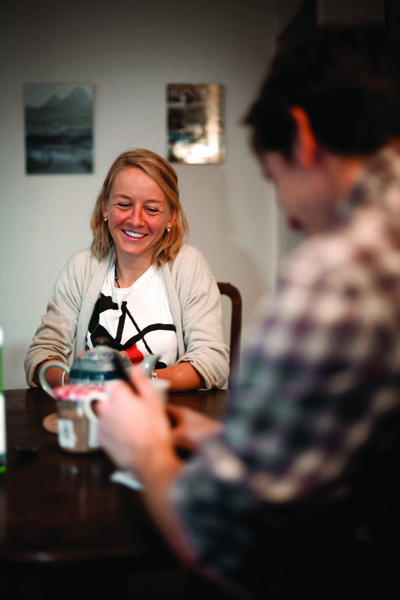
At Pooley’s current rate of improvement, world number one status is on the cards. What about the next two years – and moving one step up the Olympic podium at London 2012?
“The improvements get more incremental though; it’s much more fun at the start, you get better more quickly with more things to work on,” Pooley says with a smile. “I doubt I’ll ever have a year as good as this one again.”
It’s ninety minutes into the interview, but she can’t turn off the self-deprecation. Frustrated, I prod her. Why is that? “I don’t know why. It’s better to be pessimistic and then…”
“It’s been pretty flukey,” she claims. “There’s no Tour de l’Aude [next year], I can’t win that. The Giro would be cool, that’s what I’d really like to focus on next year. I’m hoping for the Mortirolo-Gavia combination, then we can ride down to Bormio for ice cream.”
Pooley is never more uncomfortable than when talking about herself. She’s no misery guts, but time and time again denies her own sparkling intellectual and physical capacity.
I prod again. What are her personal qualities? “Er, um, I don’t know… I think you should ask someone else.” She massages her temples and suddenly looks tearful. “I’m not good at that question. I’m good at getting stressed.”
It’s soon time for us to go. Pooley is worried that she won’t have time to go to the supermarket before it closes. The next day, she will take the long loop to the University of Zurich and spend hours working on her PhD.
Pooley is remarkable – not that she’d accept it - an anomaly and anachronism in the modern sport. Juggling study and sport, it shouldn’t be possible to become a world champion let alone a professional cyclist.
Her rigorous schedule may not make her happy all the time, even much of the time. Weeks after our meeting, she e-mails me, saying: “I feel guilty the whole time about not working or training enough.”
But Pooley has excelled at everything in life before, and as long as the determination and anxiety remain, she will continue to defy the odds and succeed. Her rivals should really be the ones who are worried.
***********
POOLEY'S PHD
It’s the question CS has been dreading: tell us about your PhD, Emma.
“How much time have you got?” Pooley smiles and sets off on into an explanation. “The basic problem is landfill sites in western Bohemia in the Czech Republic where they have open-cast coal mines. The topsoil is a clay material, but they had to dig off, and they dumped them in other coal mines.
So you had these vast areas where the soil was basically big lumps of clay with gaps in between, so they’d plant grass to make it look normal. But there were still gaps; that’s a funny soil structure and that’s called double porosity.
That’s all fine until you try and build something across it. It’s not that it’s dangerous, but you get really high subsidence levels. They were building a motorway from Dresden to Prague and they had to cross some of these old landfills, and it was very expensive because you have to keep rebuilding things, so they invented ways of improving the soil so that it didn’t slip; they’d either drop heavyweights on it – that’s called dynamic compaction – or they’d put sand columns in.
My PhD is on comparing them in the lab, to see which one is better. Modelling it in a lab on a smaller scale uses a geotechnical centrifuge, which is two and a half metres in diameter, and you put your models in the sides.
You spin it round, and the centrifugal force acts like accelerated gravity. The stress levels are scaled up, the model feels like it’s got 50 or 100 times more gravity.
Sometimes the tests run for 24, 48 hours. I have to be there, as does a technician and supervisor; a senior engineer has to check all the calculations because if you get something out of balance and you get a wobble, it’ll damage the centrifuge or blow up, and a small thing comes out of a centrifuge with a lot of force. It’s also a lot of work and tests, and that’s why I don’t want to abandon my PhD.
As an example of how dangerous these things are: when they were testing the centrifuge, they did the calculation on the bolt holding it onto the tool platform, but forgot to do the calculation for the lead itself.
Lead is actually quite soft, and it sheared off, went straight through the thick iron wall of the centrifuge, straight through the wall of the building and landed on a car in the car park and squished it. That’s why I don’t want to screw up the calculations.”
Follow us on Twitter: www.twitter.com/cyclesportmag

Thank you for reading 20 articles this month* Join now for unlimited access
Enjoy your first month for just £1 / $1 / €1
*Read 5 free articles per month without a subscription

Join now for unlimited access
Try first month for just £1 / $1 / €1
Edward Pickering is a writer and journalist, editor of Pro Cycling and previous deputy editor of Cycle Sport. As well as contributing to Cycling Weekly, he has also written for the likes of the New York Times. His book, The Race Against Time, saw him shortlisted for Best New Writer at the British Sports Book Awards. A self-confessed 'fair weather cyclist', Pickering also enjoys running.
-
 Mike's Bikes 'mega sale' is live and site wide with discounts over 50%
Mike's Bikes 'mega sale' is live and site wide with discounts over 50%Running until Sunday all products are discounted including complete bikes, clothing, smart trainers and much more
By Luke Friend
-
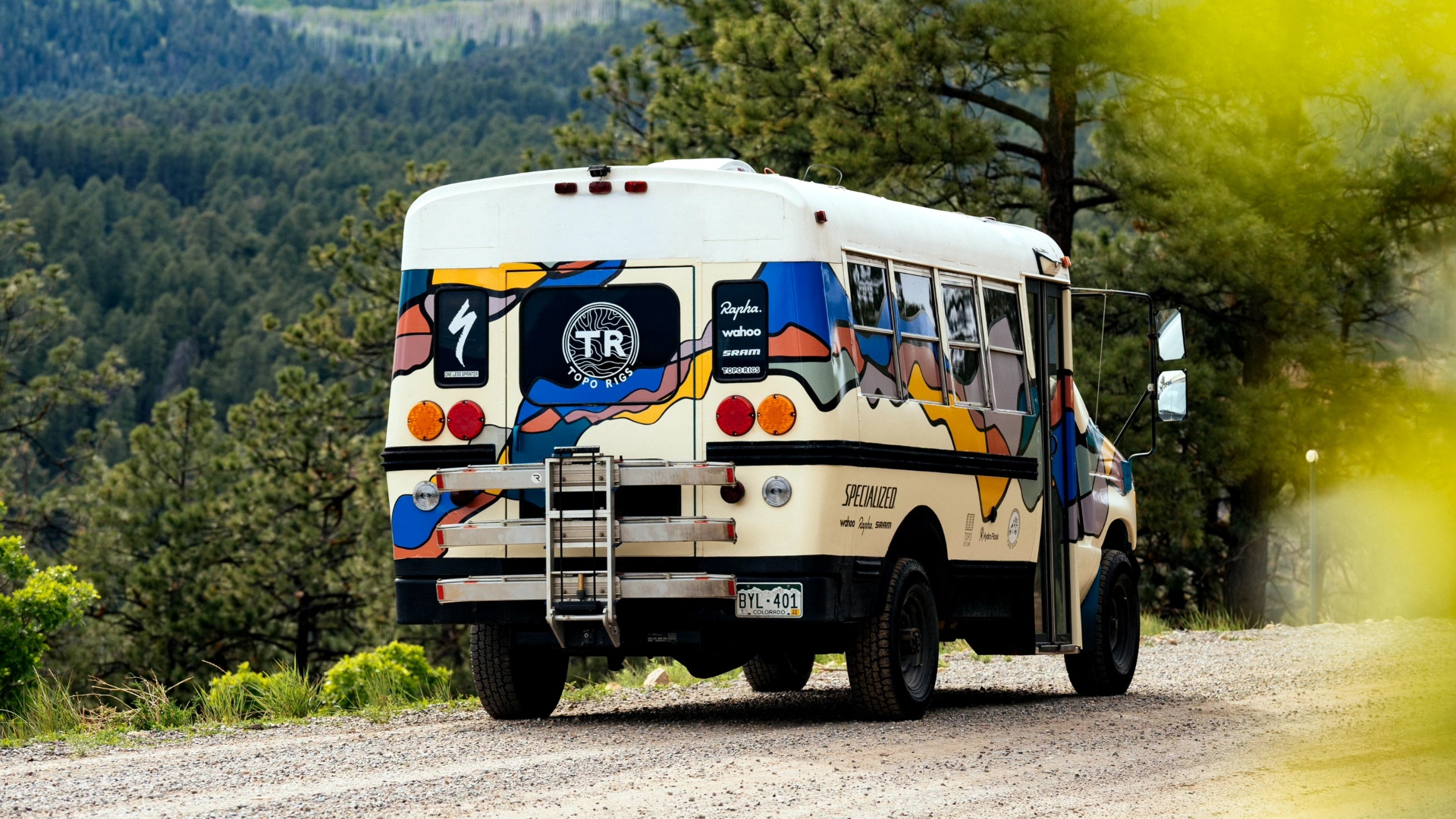 Can you be a pro athlete and an environmentalist? Earth Day reflections from a pro cyclist trying to be both
Can you be a pro athlete and an environmentalist? Earth Day reflections from a pro cyclist trying to be bothHow Sarah Sturm reconciles her life as a pro cyclist with her environmental values
By Sarah Sturm
-
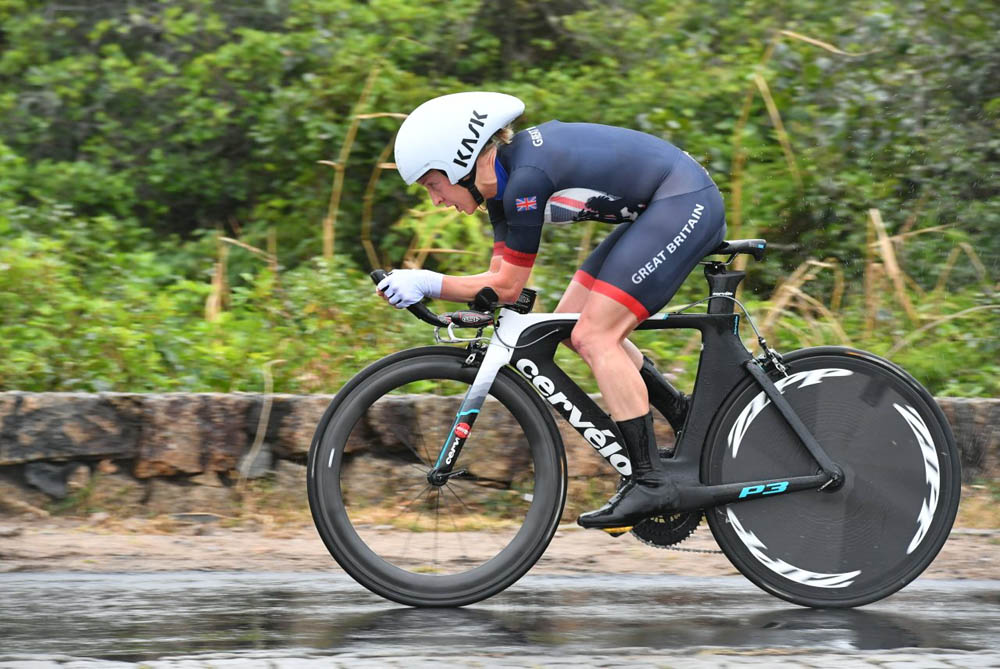 Emma Pooley: 'I have to be happy with the decision I made'
Emma Pooley: 'I have to be happy with the decision I made'The British rider could only manage 14th in the women's Olympic time trial, after returning from retirement especially for Rio 2016
By Jack Elton-Walters
-
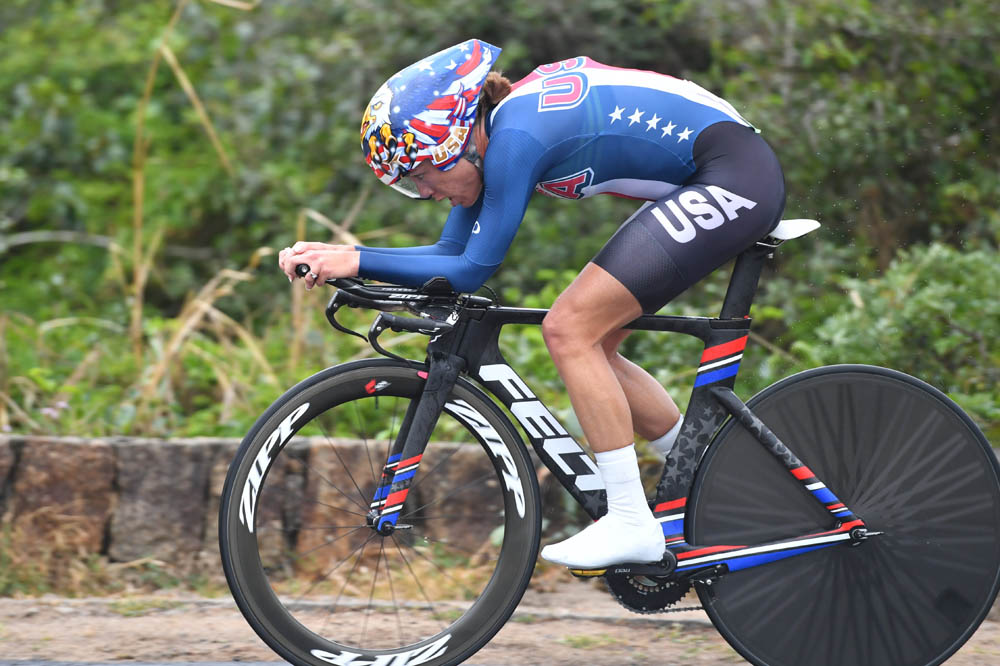 Kristin Armstrong wins Rio Olympics women's time trial; GB's Emma Pooley 14th
Kristin Armstrong wins Rio Olympics women's time trial; GB's Emma Pooley 14thAmerican Kristin Armstrong takes her third Olympic TT gold ahead of Olga Zabelinskaya of Russia; Emma Pooley finishes in 14th place
By Nigel Wynn
-
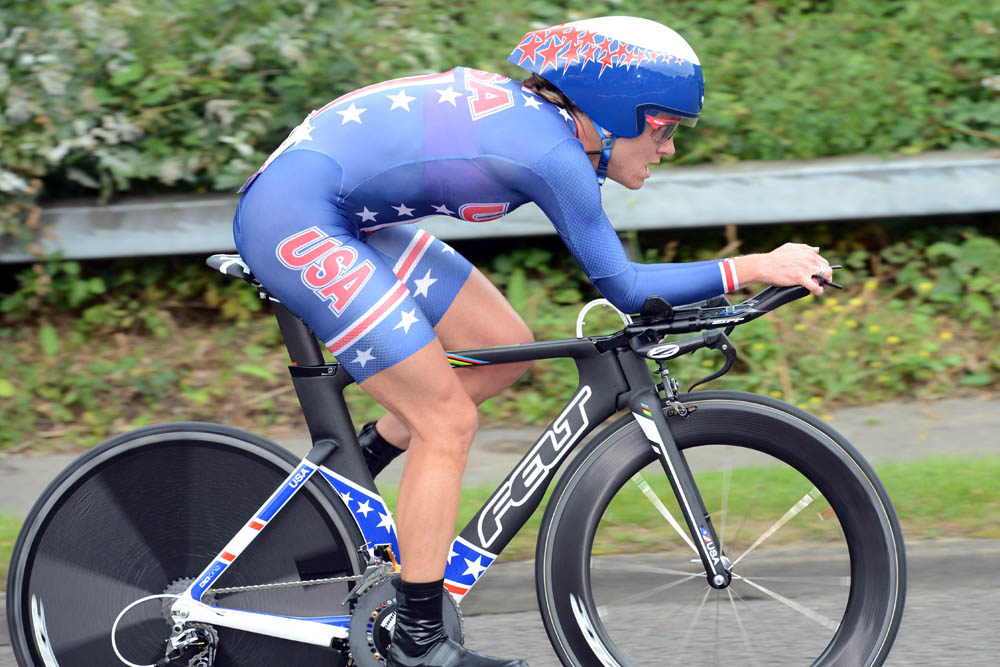 Rio 2016 Olympic Games women’s time trial start list
Rio 2016 Olympic Games women’s time trial start listProvisional list of riders taking part in the women's time trial on August 10 at the Rio 2016 Olympic Games
By Nigel Wynn
-
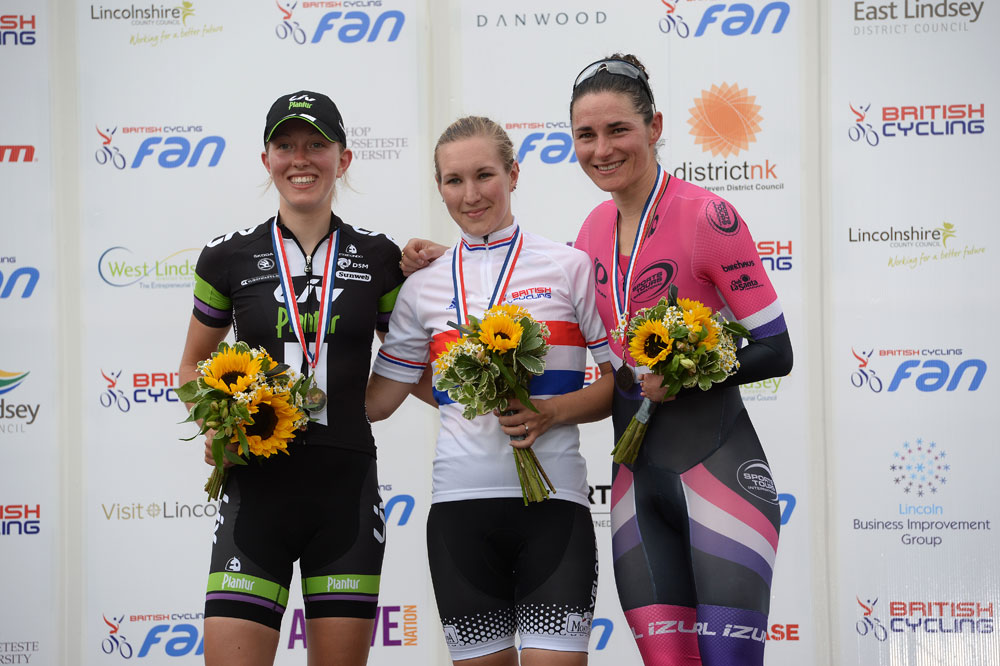 Hayley Simmonds questions British Cycling's 'unprofessional' lack of communication over Rio selection
Hayley Simmonds questions British Cycling's 'unprofessional' lack of communication over Rio selectionTwo-time national time trial champion hits out at British Cycling for their failure to notify her personally of non-selection for the Rio Olympics.
By Chris Marshall-Bell
-
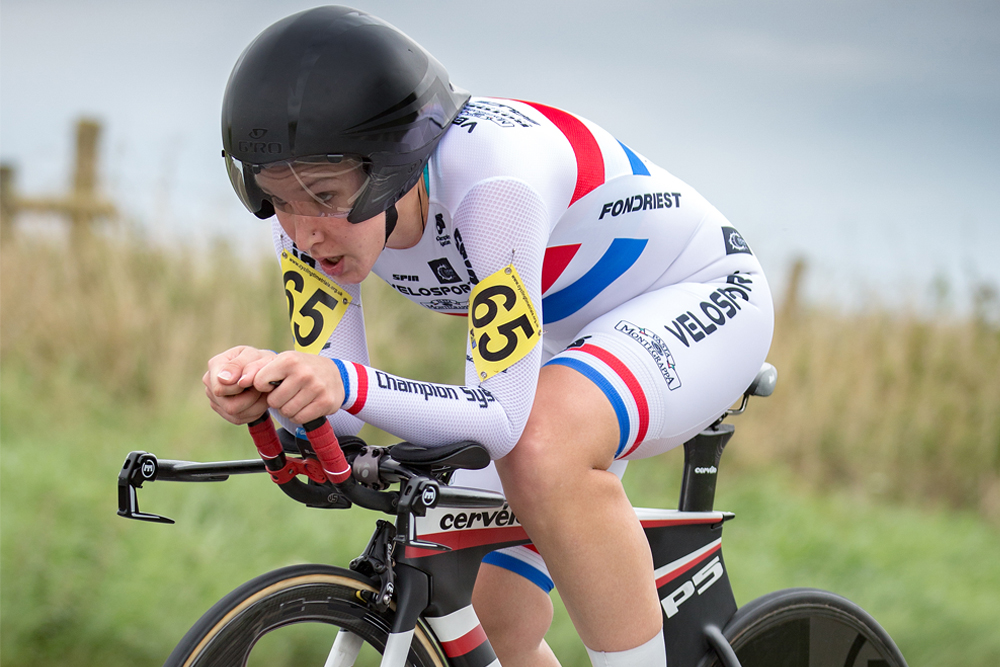 Hayley Simmonds surprised by her winning margin in National Time Trial Championships
Hayley Simmonds surprised by her winning margin in National Time Trial ChampionshipsEmma Pooley, the Team GB women's time trial rider at the Rio Olympics Games, finished fourth in Stockton, a minute shy of defending champion Hayley Simmonds
By Chris Marshall-Bell
-
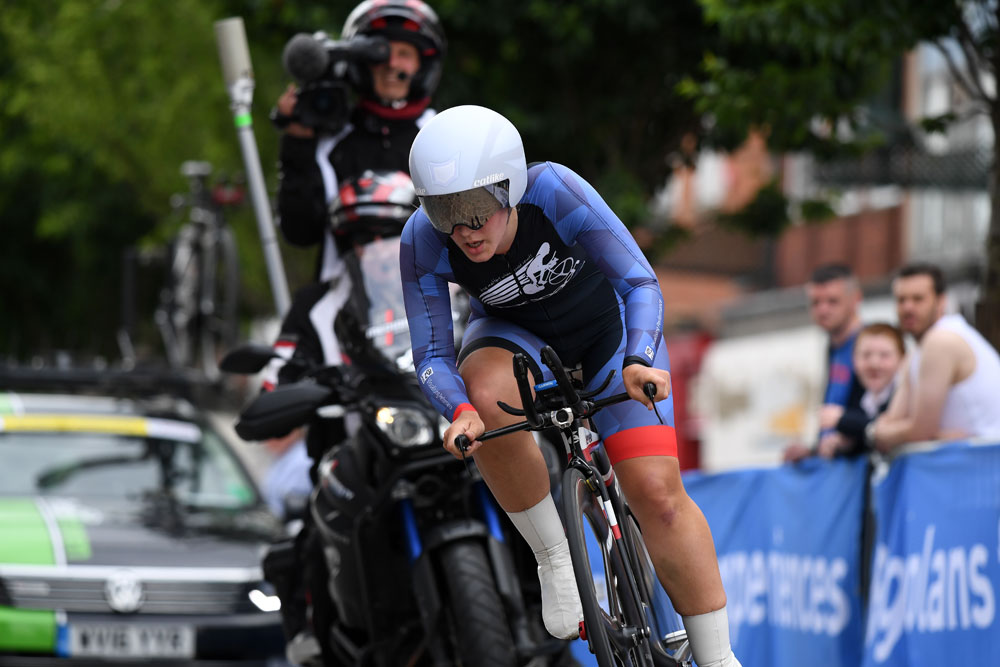 Hayley Simmonds wins British women's time trial title as Pooley places fourth
Hayley Simmonds wins British women's time trial title as Pooley places fourthSuccessful defence of the British time trial national title for Hayley Simmonds, as Claire Rose and Dame Sarah Storey complete the podium
By Nigel Wynn
-
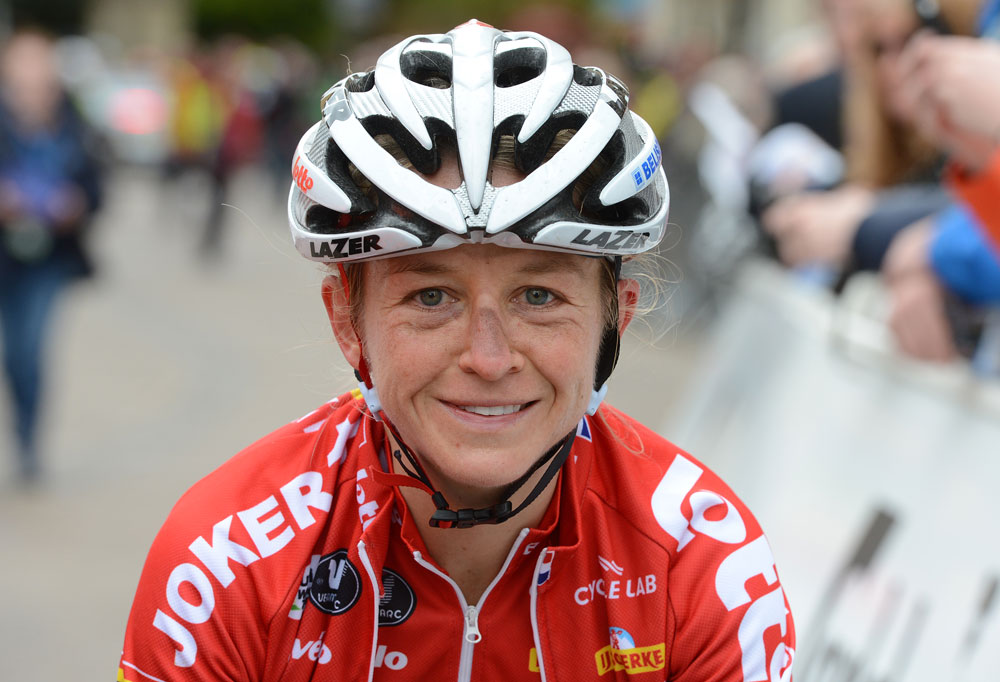 Emma Pooley re-signs with Lotto-Soudal Ladies for the second half of the season
Emma Pooley re-signs with Lotto-Soudal Ladies for the second half of the seasonEmma Pooley has rejoined Lotto-Soudal Ladies, the team she rode for before her retirement
By Jack Elton-Walters
-
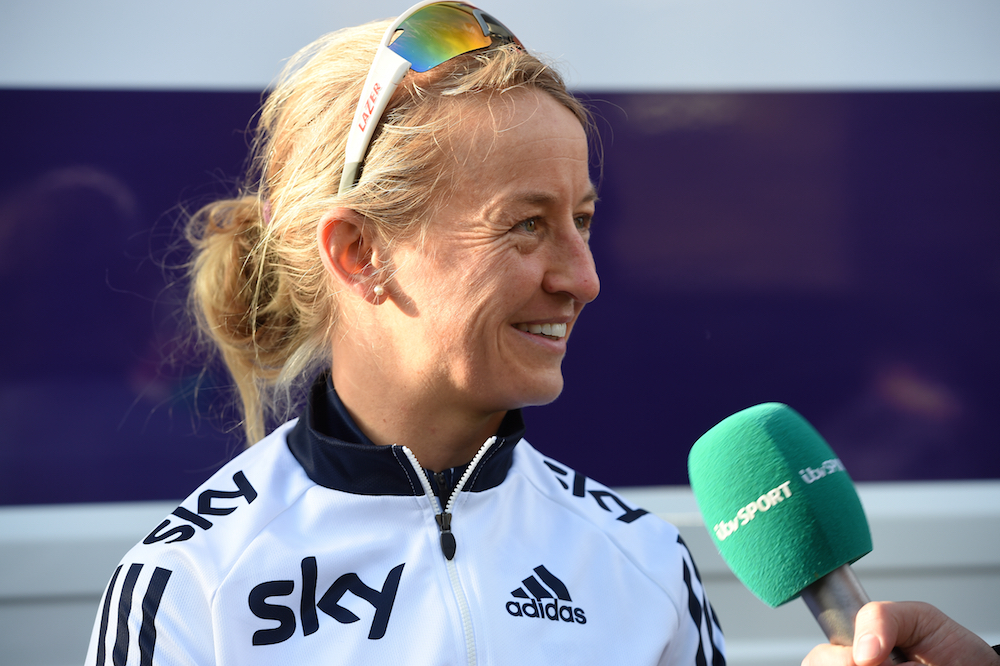 Emma Pooley leads young Great Britain team at Aviva Women's Tour
Emma Pooley leads young Great Britain team at Aviva Women's TourEmma Pooley is joined by five young riders for the Aviva Women's Tour, which starts on June 15 in Southwold
By Stuart Clarke